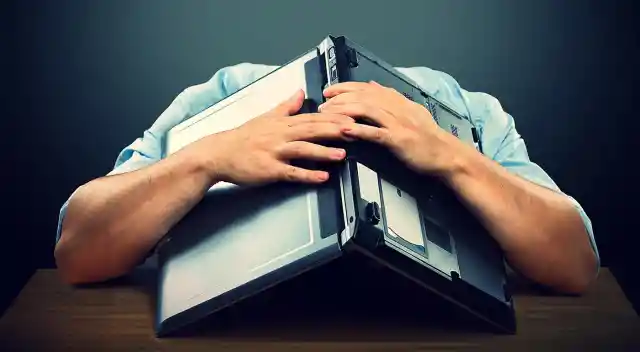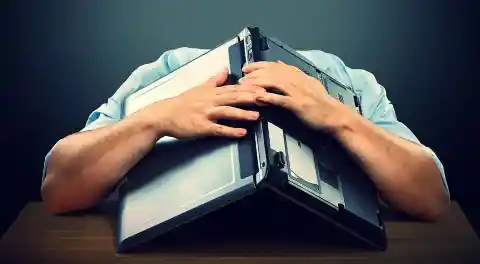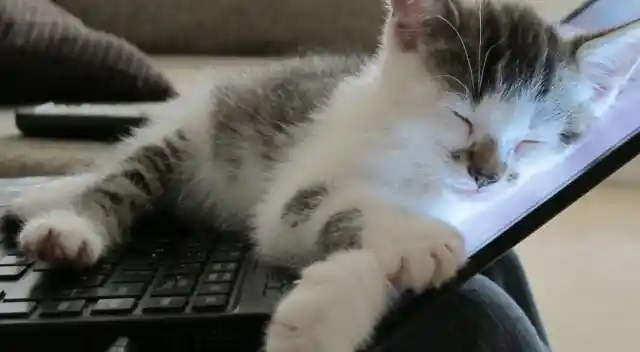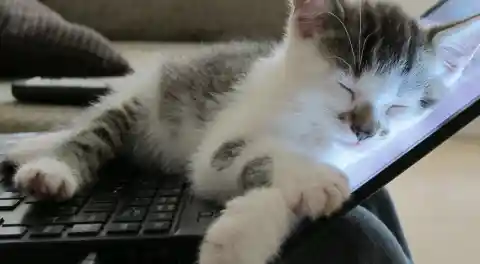The odds are that you’re procrastinating right now. I mean, you’ve got something better you could be doing than reading this article, right? Probably. So why, when we’ve – and I say ‘we’ because everyone does it – when we’ve got a deadline that’s about to smack us in the face, do we end up going on Facebook or cleaning our rooms or walking the dog – or anything else that would seem boring at literally any other time? The answer is maybe more simple than you think. We’re afraid.
Maybe the task just seems too big or too hard. Maybe underneath, you’re really scared about failing, or, you think you’re simply not capable of doing things unless you’re pressured to the max, or maybe it’s a little of all those things. Whatever the reason, there are five deceptively simple steps that employ mindfulness to start training yourself to be more disciplined and stop procrastinating.
Step One: Recognize That You Want to Procrastinate.


It’s really important that the first thing you do is be honest with yourself. Run through all the feelings you have: are you scared of that task? Are you afraid of failing? Are you resentful of the time it will take up? Are you angry you’ve left it this long already? Do you hate it? Do you feel that pull of wanting to avoid that task? Are you thinking that just because before you’ve always needed to be really pressured to get things done, that that’s the only way it’s possible for you to do things? Really dig into your thoughts and feelings so you’re not hiding from anything: there’s more going on in your mind that you might realize, and only by exploring those things will you be ready for the second step.
Step Two: Stop Judging Yourself Negatively.


Virtually everyone who puts things off until the last minute is judging themselves harshly. It’s a classic cycle where we know we have to do something, but we choose to procrastinate and then we feel guilty about making that choice. It even gets to the point where some of us let this self-criticism cripple us into inaction. Well, I’m here to assure that you don’t need to see yourself that way. Procrastination is a normal response to a task or a goal that we find threatening.
Most of the time our minds trick us into not even realizing it’s threatening and tell us that we “just don’t want to do it” or “it’s just so boring”. I’m almost positive it’s not boring. Cleaning your room is boring. Flicking back through Facebook posts you’ve already read is boring. The task isn’t boring; it’s threatening. Once you recognize why you find it threatening, you don’t need to feel guilty about wanting to avoid it anymore. Now you can acknowledge your thoughts and feelings about that task without judging them.
So now, you’re aware of what’s going on in your head, and, you’re not judging yourself negatively for it. Remember these things because as we go into the third step, you’ll need to keep reminding yourself to go easy and stop judging yourself.
Step Three: Go Back in Front of the Task.


Okay, so you got distracted. That’s cool. It might have even been productive in its own way. But now that guilt has started to creep in and that task is still there needing to be done. Maybe there’s a little anger or fear there. Put it aside for just a second put yourself in front of that task – sit at the computer, open that book – whatever it is. The trick is to do this without emotion. You don’t need to be frustrated with yourself or fearful or think it can’t be done. Just bring your attention back to the task at hand.
With the psychological foundation laid, you can now start to go about refocusing your attention on the task at hand. If you’re a chronic procrastinator then this is going to be the step that takes the most practice. Have you found that you’re distracted again? Picked up your phone again? Convinced yourself that there’s some urgent cleaning that needs to be done or a snack you need to have? Okay. Remember, don’t be harsh with yourself. Just note that you’ve started doing something else and return your attention to the task at hand.
Step Four: Make a Small Start.


The task that you’re trying to avoid is made up of heaps of smaller ones. An essay is made of sections, paragraphs, sentences and words. A wedding seating plan needs a guest list and venue plan and name tags. A budget needs a list of expenses and income. So begin on of these smaller parts and maybe set yourself a goal to accomplish one of these smaller parts. Ever notice that once you’re actually doing a task, most of those uncomfortable feelings just go away? Ever notice that it’s actually just the worrying about doing the task that actually causes the most stress, not doing the task itself?
So start on one of the sections. It’ll actually make you feel better, and, you won’t be procrastinating. And once you start, you’ll be showing your mind that actually it isn’t that threatening; that you can overcome it, little by little. With that message being sent to the brain the pull away from it will reduce and you’ll be able to do a little more. Find yourself distracted again? That’s okay – just note that you’ve been distracted and return to the task. Continue that little section. Start the next little section. All of a sudden, you’re not procrastinating quite as much anymore.
Step Five: Practice.


Here’s the main trick, guys and girls: the people who seem like they don’t procrastinate are simply following these steps. They feel the same pull away from tasks. They feel the same fear of failure. They feel the same guilt about not working. They also once believed that being under a lot of pressure is the only way they can work. The difference is, they’ve just practiced returning to the task enough that their brain can’t con them into thinking that anymore.
And there is one con: the only reason you think you can only work if you’re under a lot of pressure is because that’s the main way you’ve been able to get things done in the past. But it doesn’t have to be that way. Practice the steps above – be mindful, don’t judge yourself, return your attention to the task and make a start. Being disciplined is about making the choice to practice discipline. So make the choice.